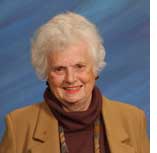By Natasha Josefowitz

LA JOLLA, California — Something amazing is happening right now, right here, right under our noses: A change in value systems. What is right and wrong is different today from just one or two generations ago. There is a clamor in the winds of the world for a new kind of justice, a new kind of recognition, that all is not well, and we can indeed do something about it. The push for gender equality in the workforce, the non-acceptance of discrimination against women and people of color, the need to make room for the disabled, the immigrant—are all part of a new awareness. Values have always evolved over decades and centuries according to the different cultures around the globe. Abraham had many wives, so did Mormons; today in America it is bigamy. Child labor was seen as normal in past centuries; it is not here in America. The same can be said for slavery and for the way women were treated or perceived.
We are in a time of transition. Quite suddenly what was kept under wraps and, therefore, seen as “that’s how things are” to “hey that is not ok” —such as inappropriate touching, making lewd remarks, or joking at someone’s expense. So what was innocuous and accepted just a few years ago is sexual harassment today. In the 16th century, Shakespeare wrote in Measure for Measure about Isabella telling the duke, her superior, that she would tell the world about his transgressions; he replied: “Who would believe you?” This is in fact what has changed: Women believe that they would be believed and so are coming out in droves with accusations of being victimized both by predatory men and by the silence and complacency of our culture. What has made this possible and what was needed to make this happen was such a gross exaggeration of predations, vulgarity and power ploys that we all recoiled in horror and said “enough,” such as Weinstein collaborating with staff to ensnare powerless women. For most there is still no recourse; the deeds were done without repercussions.
What is new today are the repercussions. This progress seems to only be in the visible high places where men are falling off their pedestals at our own amazement like so many pinballs—“no, not him,” “He, too?” “He was my hero”—all right under our eyes. The witnesses to these misdeeds are as much to blame for their silence and, all too often, cooperation.
The question now: Will this new accountability become part of our culture? That “no” is in fact “stop” or will we revert to business as usual—objectifying women? Are we doomed to be misogynists and racists? Is it in our genes to brutalize the different, the powerless? Perhaps we are evolving in a new kind of human awareness and control over one’s primitive urges to use, to subjugate.
Most people want peace and an opportunity to work in a decent environment with fair compensation. The majority of people around the world want the same thing: to have a home, access to healthcare, an education, to find a mate, to raise children in a safe setting. Most people want to love and not hate; most people want to be helpful. If children are loved and well taken care of, if they have formed secure and dependable attachments to the adults in their lives, they can grow into loving and compassionate adults. It is only when there is neglect or abuse that the part of the brain that encompasses empathy never has a chance to mature; therefore, these children cannot understand other’s pain. Their own pain translates into anger, often wanting to hurt others. So if we want to change the world, we should start by seeing to it that parents should get whatever help they need to be nurturing and available to their children. This is not always easy when there is no money, when there is mental illness, or alcohol or drug abuse, when parents are barely surviving themselves. It is during these very early years that problems can start and where help is most critically needed. A simple thing like mothers reading to their children translates twenty years later into not only better grades, but better adjusted young adults.
Let us all add to the clamor in the wind for justice, for fairness, for equality. Some of us can give money; some of us can give our time; some of us can talk about the issues, and some of us can write.
*
© Natasha Josefowitz. This article appeared initially in the La Jolla Village News. You may comment to natasha.josefowitz@sdjewishworld.com
Well stated, Natasha! This retired teacher (after 30 years) agrees whole-heartedly and especially with your last two paragraphs. Thank you for this article!